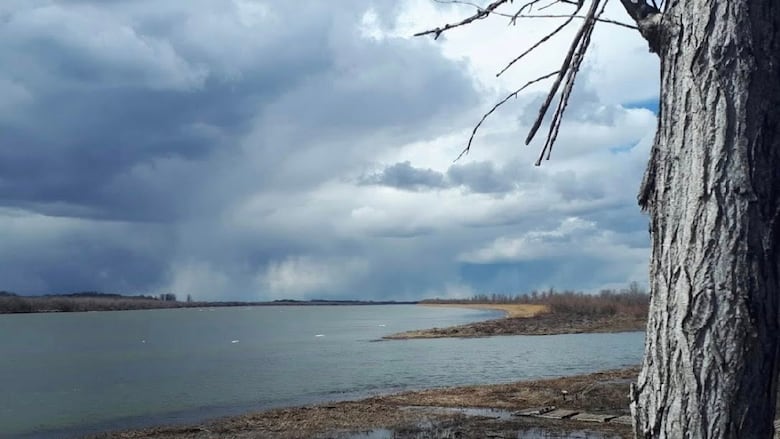Cumberland House women to travel Sask. spreading awareness of disruption of northern river delta
'Without clean, healthy water, we're done for,' advocate says

A group of Indigenous women from from Cumberland House Cree Nation in Saskatchewan say they want to raise awareness of the harmful effects of dams on the Saskatchewan River delta.
For generations, the people of Cumberland House Cree Nation, located about 350 kilometres northeast of Saskatoon, have depended on the Saskatchewan River delta, the largest freshwater river delta in North America, stretching 9,700 square kilometres from northeast Saskatchewan into western Manitoba.
In June, lawyers for the First Nation in northeastern Saskatchewan filed a statement of claim in Saskatoon Court of King's Bench, alleging the government has failed to uphold its treaty obligations. It names the government of Saskatchewan as the defendant.
Now, a group of women calling themselves the Indigenous Saskatchewan Women's Environmental Water Advocacy Keepers Water Movement, or the Iskwewak Movement for short, are planning to travel the province sharing their knowledge of what has happened to the water system.
Veronica Favel, one of the water advocates, said the delta is very important for northern people, who use the waterways to get from place to place.
"Currently the waters are quite low and the river system is very hard to navigate," she said.
She said in some places you come across sandbars, mud bars and rocks more often now because of low waters, which are also impacting land resources and wilderness camps.
"It's very hard to navigate through that because of what's going on. It's actually dangerous to be out there if you don't know the waterways."
Favel said there needs to be better management of water, because soon there will be no river delta.
"We've been saying this for years," she said.
"We've had elders that knew prior to this the existence of the dam. They knew that this was gonna have a huge impact, huge destruction. We've had research studies done on the Sask. River delta, which is our homeland, and we know what it's done to not only the environment, but to the animals that feed off it."

Denise McKenzie, another water advocate in the Iskwewak movement, said water is essential to everyone for survival.
"Water is life, to us it is sacred, and without clean, healthy water, we're done for," she said.
McKenzie said the goal is to spread awareness to people all across Saskatchewan.
"The way things are going now, we're not going to have a Saskatchewan River delta, especially after they put in the Gardiner Dam's $4-billion project plans they have for the irrigation project. That will be the final blow to the Saskatchewan river."
McKenzie was referring to a massive, three-stage irrigation infrastructure plan Premier Scott Moe announced in 2020. Experts have said that a Saskatchewan government-funded report analyzing the costs and benefits of the project showed it is a risky venture that offers, at best, modest gains.
The advocates' journey is set to begin on Aug. 4. They plan to drive from the E.B. Campbell dam in northern Saskatchewan, to Danielson Provincial Park, to Rotary Park in Saskatoon, then finally to Wascana Park in Regina. They say they will be doing ceremonies all along the way and speaking about the harmful effects the dams have on the waterway system.
"Water is life. Without water nothing lives, and we see the devastation of what is happening," McKenzie said. "We know we have to do something about it. We need these much needed changes, we need to the protection."
She said the Cumberland Lake used to be 30 miles (almost 50 kilometres) in length, and 30 to 40 feet deep. Since the establishment of the E.B. Campbell dam in the 1960s, the lake has drastically shrunk, she said.
"Today it is less than two miles across, and it's only two feet of water with the rest sludge down below. You can't even go on a nice canoe trip across the lake," she said.
Favel said this change is impacting her community's culture and way of life.
"We as Indigenous people, we've always lived here and we've always been in connection with the land and what comes with the land.," she said.
"We know that without the land or water our culture is going to die. It's a huge part of it. We're connected with all of that, we're the ones that experience it. We live with it, and we have children, grandchildren that are going to live here forever. So we need to do something about it, and that's this is our duty as protectors of water."

